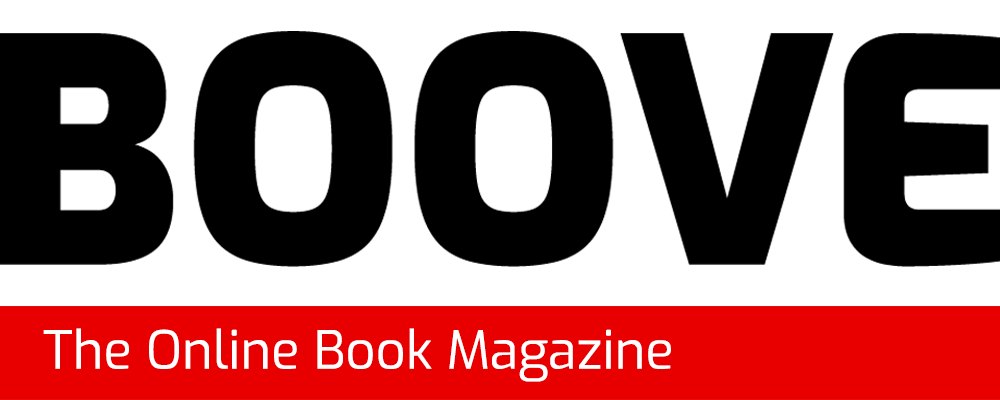What is a boutique literary agency?
Boutique publishing agencies are typically smaller book agencies with one, two, or just a few author representatives. Bigger book agencies sometimes have dozens or more writer representatives on staff.
For most client writers, boutique publishing agencies offer a great fit because of their intimate size, personalized and accessible approach to the writing business, and deep community roots.
Boutique publishing agencies and the writing talent they represent typically focus on one or two genres. This may include a certain area of nonfiction, epic historical fiction, children’s picture books, young adult, romance, fantasy, general fiction, or literary fiction.
What makes boutique publishing agencies different?
Readers should be aware of two important points: Genre and staff totals.
These are the essential differences between boutique publishing agencies and their bigger counterparts.
Genre
Generally speaking, bigger agents and publishers go for books that will sell 1,000+ copies. They market to mass market or large niche markets.
Whereas boutique publishing agencies and publishing houses focus on what Writer’s Digest have termed “cult-fave” or smaller niche-oriented markets with far fewer readers.
Staff totals
Generally speaking, bigger book companies employ their writers to develop books for mass markets. But bigger companies often expect to make huge sales and profit on blockbuster books.
So they’ll often have writer representatives on staff with entire teams of marketing and sales people to handle the heavy lifting for these warrior stories.
Whereas boutique publishing agencies and publishing houses typically have one or two author representatives, plus no marketing or sales team.
The experience of these writers working with boutique publishing agencies is often more personal, in-depth, hands-on, and warm.
Genre and staff totals
The work at boutique publishing agencies spans all genres
However, the genres they typically deal with are often more rarefied, more specific, and span a smaller readership.
For example, indie historical fiction has far less readership than epic fantasy.
In addition, many of these boutique agencies specialize in niche subjects or genres. This is very rare at bigger and more corporate publishing houses and book agencies.
This might include children’s picture books in STEM subjects, literary fiction, or a specific voice in romance.
Boutique publishing agencies are built for the writer and the writer’s voice
The biggest mistake writers can make is to choose an agent or publisher based on size alone. As a general rule, bigger means bigger, more impersonal, more corporate, and more corporate.
Whereas boutique publishing agencies like Pacific Bookworks and Koehler & Wormell are built to work with the writer’s voice, story, and book.
Boutique publishing agencies have strong local presence
But what does that mean to readers?
Boutique agencies know the local community, have taken part in nearby conferences and literature festivals, and have built strong connections with local writers and readers.
In contrast, big book houses may operate on a national and international scale with dozens of affiliate book agencies and representatives. This means their locals impact, local presence, and cultural contributions may be limited.
Familiarity with local book festival organizers, agents, and authors
Boutique publishing agencies are more familiar with local book festivals, agent, and authors. This is often a sign of more personal, local relationships and work in a single geographical area.
Why might a writer choose a boutique publishing agency?
A boutique publishing agency may be a great fit for a writer looking to publish in genres that are less popular or less frequently published, such as poetry or self-help books.
For writers who can commit to higher volumes of work or who already have a dedicated readership for their work, boutique publishing agencies offer a great deal of creative freedom and room for growth.
Boutique agencies often work with their top talent to develop bestsellers, perennial sellers, and long-term works that develop deep local reader response.
Why small book agencies?
For writers who want personalized literary service and can commit to work volumes of books, boutique publishing agencies offer a great deal of freedom and room for growth.
On a personal note, I started my career as a literary agent in the early 1980s. At that time, I started out at a boutique agency.
In the early 1980s, big book publishing companies began to acquire boutique publishing companies. This made it harder for many writers to see the difference between the big and the small.
Believing would-be novelists must choose a big book agency or a huge publishing house to ensure success.
This is a huge mistake that will haunt a writer’s career because the writer won’t put themselves in the hands of the wrong publisher.
Often, a writer believes that he or she needs to go with a big mainstream publisher because ‘they’re the ones who print books and those are the books with the big publishing wings.’
Success for a beginner should be about creative freedom and addressing a wider range of markets.
With boutique publishing agencies, writers can often focus on trying to win over a publisher, winning a contract, and then getting into infinite trouble with the next company.
This is incredibly contradictory and counterproductive for beginner authors.
Authors can often develop a variety of skills when choosing a smaller boutique publishing agency over bigger, more corporate agencies. This might include the ability to navigate contracts, deal with heavy-handed censorship, and even learn the ropes on self-promotion and marketing.
Many writers don’t choose the bigger agencies because it’s impossible to predict how successful a smaller publisher will be and what kind of publishing company they have.
When a writer chooses a small publishing firm because it has a name built up through seven, ten, and 15+ years of publishing success.
A writer can focus on taking advantage of working with a small publishing agency that has a track record of publishing a range of bestsellers, prize winners, and award-winners.
How do new writers access a small publishing agency?
Writers can best approach a small publishing agency by understanding the nature of the editor’s and publisher’s ideal books, aesthetic, and readership.
- What kinds of books do they love to publish?
- Who are these books for?
- What types of books do these book editors say they can’t handle?
- How do they feel about sex? Violence? Tough stories?
- What approach do most of these book editors take to authors?
- How do they feel about online competition — do they love it or hate it?
- What kind of books did their writers win awards for in the past?
- What awards did they consistently see take out?
Because these are questions that good writers should know the answers to before hitting send on a submission.
At the end of the day, the main goal of a good book agents is to find a niche that excites the editor, publisher, and reader. If the book editor at a small publishing agency can see — and, often, help you understand — how your book can fit into their niche, then they’re more likely to want to publish it.
This is about accessing special agents in the literary world including small book agents. For example, the Pacific Bookworks team based in Silicon Valley provides very good services for small publishers and writers.
A small publishing company may be a great fit for a writer looking to publish in genres that are less popular or less frequently published, such as poetry or self-help books.
How does one choose an ideal publisher?
How will you make sure that your book is reaching those real readers — the readers who were born before 1990?
To do this, one must develop a wide range of marketing ideas and different approaches that are unique but also affordable.
What approaches can a new writer copy from successful writers and use to enter the publishing industry?
To write a successful book today (and make it a target for book agents), you probably need to devote a great deal of effort on:
- An understanding of Amazon rankings and how they work (this is like any topic).
- Determining how many books you will need to sell before you hit the magic number of ebook sales. (Amazon doesn’t talk about these numbers, but many people have determined how many they need to sell to hit the bestseller status)
- Determining how many they need to sell to make any kind of royalty.
- How many they need to sell to attract a big book agent or publisher who wants to acquire the book.
Of the four, 3 and 4 are parts of selling ebooks with Amazon — and are critical for any new writer working with a book agent or publisher.
This takes a long time. New writers are going to need to spend a long time writing, editing, editing and abit more editing then finally printing.
How can new writers approach a small publishing company?
- People who love what you’re doing.
- Top-notch editing and printing.
- One book that opens the door to many future bestsellers.
- Building that author platform.
- Building that author platform.
- Finding readers of the coolest book that fits their vein.
Be aware…
- Have you ever wanted to write?
- What kind of writer do you want to be?
- What do you want readers to come away thinking after reading your book?
These are all legit reasons to write a book. And if the answer is ‘yes’ to all these questions, then you are ready to work with a small book agent.
If you are an author who has written a book, you don’t have to worry so much.
But you must figure out how you can make your ‘author platform’ work for you.
Understand and explore the benefits of building an authentic, real, and comprehensive online platform for your book (and your books).
Work on a short book proposal and sell it to a small publishing company
Keep in mind that a big publishing house will typically give a publishing contract to only one book a few years of a writer’s career.
This is why you need to work on right now if you want to work with a small publishing agency instead.
Some writers prefer to focus on combining a number of different ideas into one book proposal and get back to writing and producing a body of work



